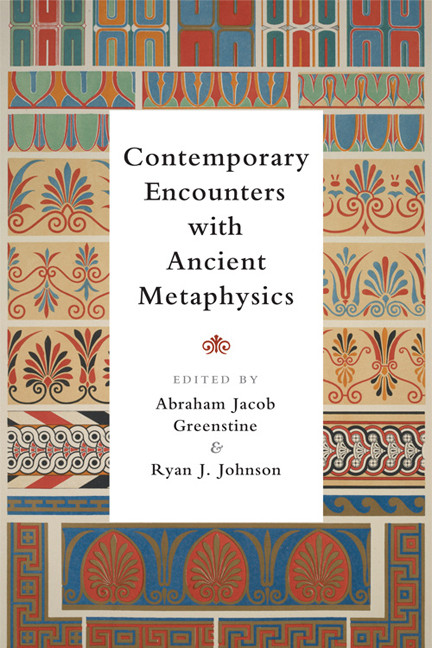12 - Object and Οὐσία: Harman and Aristotle on the Being of Things
Summary
As even a cursory reading of his many books and articles makes clear, Graham Harman means to change the course of contemporary philosophic inquiry in at least two fundamental ways. He wants to revive realism and metaphysics. And he wants to put objects back at the center of metaphysical inquiry. In the case of the first goal, Harman has a number of allies, including his fellow speculative realists; in the case of the second, he is much lonelier. Or at any rate, he has few contemporary allies. Harman claims that his object-oriented thinking not only has roots in the “key insights” of Heidegger and Husserl, both of whom have much to say about objects (in spite of Heidegger's aversion to the word); it is even more deeply grounded in Aristotle's thought. As he notes at one point in The Quadruple Object, “[my] metaphysics of objects has even deeper roots than [Heidegger and Husserl]. For in a sense, this book seeks only to provide a weirder version of Aristotle's theory of substance.”
Harman's attempt to link his own focus on objects to Aristotelian philosophy makes a certain sense. After all it was Aristotle who first put substance, οὐσία, on the philosophic map, in fact made it the central theme of metaphysics: “The thing sought and always causing perplexity as regards what being is, of old and now and always, is just this: what is substance [οὐσία]?” If “substance” and “object” are virtual synonyms, as Harman sometimes suggests, then Aristotle is the first object-oriented philosopher. Moreover, no philosopher has paid more attention to things in all their glorious individuality than Aristotle. Consider, for instance, the shelf's worth of books that Aristotle produced on animal life, starting with the History of Animals – these texts could only have been produced by someone who spent many years with his eyes wide open, attending to the nearly infinite variety of living things. If Harman wants to ally himself with philosophers who take individual objects seriously in their individuality, neither undermining nor overmining them, Aristotle (along with Leibniz) would certainly be a prime candidate.
- Type
- Chapter
- Information
- Contemporary Encounters with Ancient Metaphysics , pp. 224 - 242Publisher: Edinburgh University PressPrint publication year: 2017



